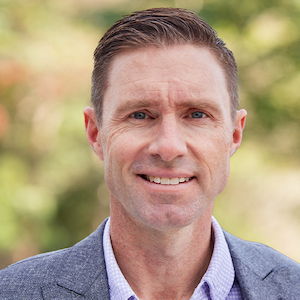How many times have you been told (or said) this: “It’s a board member’s responsibility to fundraise”?
Staff say: “Hey board members, fundraising is an expectation”. Then, when many board members don’t fundraise, staff bang their heads against the wall.
Rinse and frustratingly repeat.
What if the world of professional golf could teach us something about how to handle this seemingly unsolvable problem?
The Same Rules for All
For years, one of the appeals of playing golf was that unlike other sports, people could play the same game the pros play. Same rules, same golf courses (if they could afford it) and the exact same equipment.
Equipment technology (larger golf club heads, lighter golf shafts, a farther traveling golf ball, etc.) saw massive gains during the late 1990s and 2000s. As equipment technology rapidly advanced, elite professionals were hitting it so far that courses spent millions of dollars to make their courses more challenging and to combat the distance the ball travels. Meanwhile, the average golfer was enjoying these equipment advances at a smaller scale, making the game more enjoyable and fun.
So, on one hand, technology advances hurt the game by the money spent to “beef up” golf courses (those dollars passed along to the average golfer/club member) yet helped the game by allowing less skilled players make a few more pars and birdies.
What Does All This Have To Do With Board Fundraising?
After beating its head against the wall for two decades, the United States Golf Association finally had enough. They decided to establish a rule that effectively “rolls back” how far a professional golf ball can travel, while allowing everyday players to continue to use the distance ball.
They broke a long-standing, yet unwritten rule of golf: that everyone had to play the same equipment. One set of rules for professionals, one set of rules for amateurs; a concept known as bifurcation.
Bifurcation and A Culture of Philanthropy
Why can’t we as non-profit development staff do the same with our boards? Some volunteers are good at fundraising and are willing to do it; others not only don’t have the skill set to fundraise but also loathe doing it when asked.
Now, I can almost hear the immediate reaction to breaking this rule: “That’s not fair to the board members who have to fundraise, while other members don’t!” or “How can we create a culture of philanthropy if some board members don’t fundraise??”
Let us be clear: all board members must have a philanthropic stake in the game of your nonprofit's mission. Yet, approaching that with a least-common-denominator framework of minimum give/minimum gets will simply leave you frustrated.
For example, why shame a school teacher (who is key to your relationship with the district) that they can’t “step up” and give a $1,000 each year? Or, why expect a software engineer who is on your board to help with IT (and is uncomfortable at large gatherings), to chat up people at a fundraising event for donations? No offense to all the highly social software engineers out there.
We Are Giving You Permission to Break the Rule that “All Board Members Must Fundraise.”
Instead, have a thoughtful framework around how to recruit and retain board members who have the skill-set and willingness to raise money, while having other intentional ways to engage “non-fundraising” board members to support your mission.
We have specific people with specific skill-sets for the finance committee, property committee, insurance committee, etc. Why not for the philanthropy committee? Let’s stop using a one-size-fits-all approach for board member philanthropy.
You’ll end up with fewer bruises on your forehead and may even have some fun along the way!
 This Month's Focus
This Month's Focus



